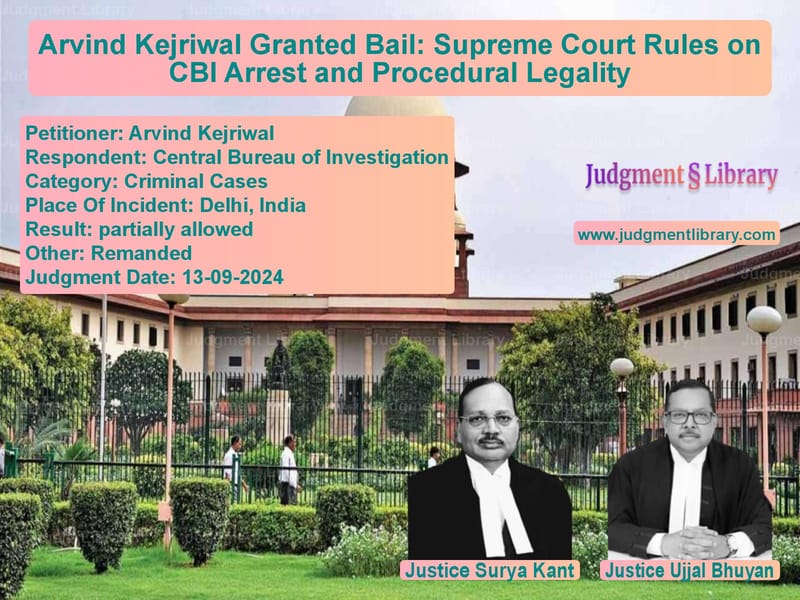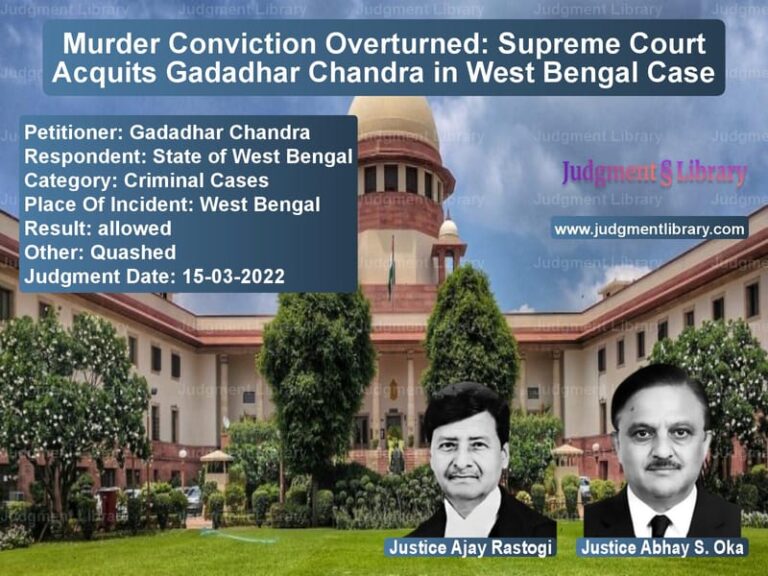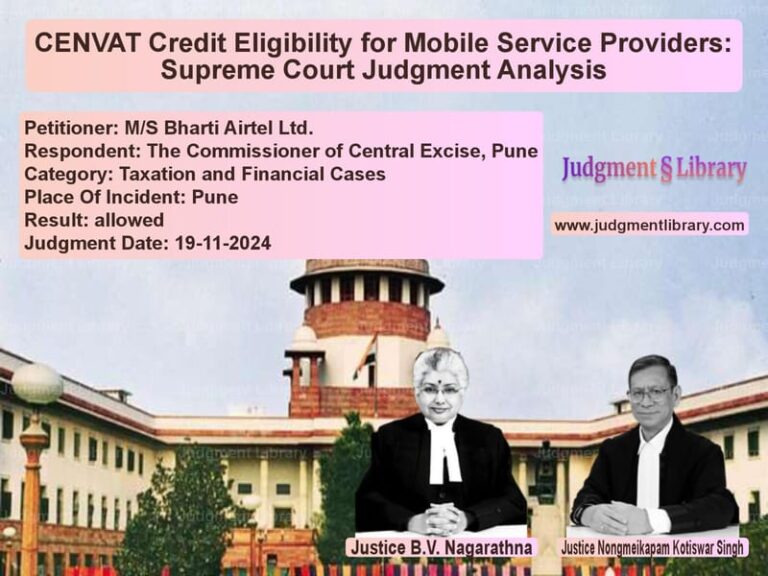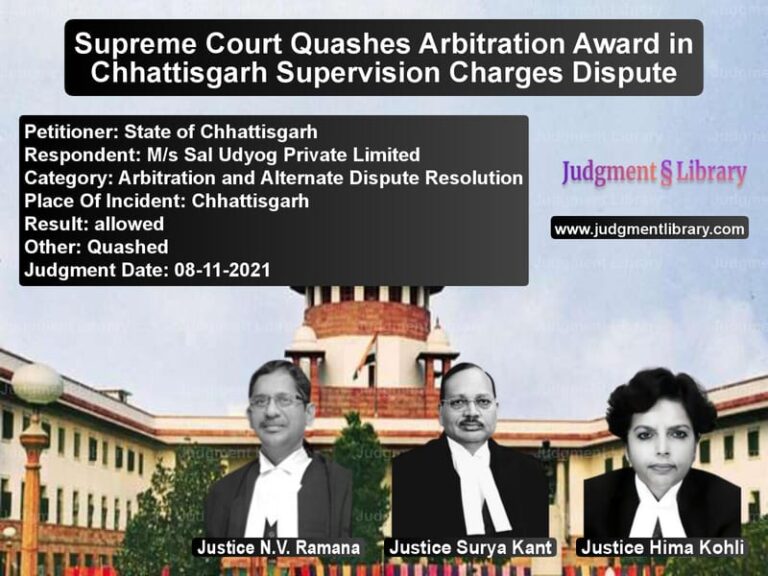Arvind Kejriwal Granted Bail: Supreme Court Rules on CBI Arrest and Procedural Legality
The legal battle between Arvind Kejriwal and the Central Bureau of Investigation (CBI) has drawn national attention, centering on allegations of corruption in the Delhi Excise Policy for 2021-22. The Supreme Court, in its judgment dated September 13, 2024, ruled on the legality of Kejriwal’s arrest and his subsequent bail plea. The verdict upheld the High Court’s rejection of Kejriwal’s challenge to his arrest but overturned the denial of bail, granting him conditional release.
This case is significant not only for its political ramifications but also for its interpretation of procedural safeguards under the Criminal Procedure Code (CrPC), particularly concerning arrest procedures and the right to bail.
Background of the Case
Arvind Kejriwal, the Chief Minister of Delhi and National Convenor of the Aam Aadmi Party (AAP), was arrested by the Enforcement Directorate (ED) on March 21, 2024, under the Prevention of Money Laundering Act (PMLA). The arrest was linked to the Delhi Excise Policy case, wherein Kejriwal was accused of benefiting from illicit funds amounting to Rs. 100 crores, allegedly used in the Goa Assembly elections.
Separately, the CBI had registered an FIR on August 17, 2022, under Sections 120B and 477A of the Indian Penal Code (IPC) and Section 7 of the Prevention of Corruption Act. Kejriwal was not initially named in this FIR. However, the CBI later sought to interrogate him while he was already in judicial custody under the ED case. On June 26, 2024, the CBI formally arrested him, alleging non-cooperation during interrogation.
Arguments Presented
Appellant’s (Arvind Kejriwal) Arguments
Represented by Senior Advocate Abhishek Manu Singhvi, Kejriwal challenged the legality of his arrest on the following grounds:
- The arrest was made without compliance with Sections 41(1) and 41A of the CrPC, which mandate that justifiable reasons must be recorded for an arrest.
- The CBI misapplied Section 41(2) of the CrPC, which is meant for non-cognizable offenses, while Kejriwal’s case involved a cognizable offense.
- The arrest was politically motivated, occurring only after the ED’s case against him weakened.
- There was no necessity for his continued incarceration since all relevant evidence was already in CBI custody.
- He had already been granted bail in the ED case, indicating that he posed no flight risk and was not likely to tamper with evidence.
Respondent’s (CBI) Arguments
The CBI, represented by Additional Solicitor General S.V. Raju, countered Kejriwal’s claims with the following points:
- The arrest was legally justified under Sections 41 and 41A of the CrPC, as there was sufficient evidence of his involvement in the alleged conspiracy.
- Since Kejriwal was already in judicial custody, issuing a separate notice under Section 41A would have been unnecessary.
- The arrest was crucial for custodial interrogation to establish a larger conspiracy and trace the money trail.
- Kejriwal’s influence as a political leader could pose a risk of witness tampering.
- The High Court correctly ruled that Kejriwal should first seek bail from the Trial Court.
Supreme Court’s Observations
The Supreme Court, comprising Justices Surya Kant and Ujjal Bhuyan, examined two primary issues: the legality of Kejriwal’s arrest and his entitlement to bail.
Legality of the Arrest
The Court ruled that Kejriwal’s arrest did not suffer from any procedural illegality. It held that:
- Since Kejriwal was already in judicial custody, the CBI followed due process by obtaining court permission before interrogation.
- Section 41A of the CrPC does not require a separate notice for an individual already in custody.
- The CBI provided sufficient reasons for the arrest, including Kejriwal’s alleged evasiveness during interrogation.
Thus, the Court upheld the High Court’s ruling that the arrest was legal.
Grant of Bail
While the Court upheld the arrest, it took a different stance on bail. It ruled that:
- Kejriwal’s prolonged incarceration was unjustified, as the trial was unlikely to conclude soon, given the extensive documentation and the large number of witnesses.
- Since he had already been granted bail in the ED case, it was unreasonable to keep him in custody under the CBI case for the same allegations.
- The prosecution’s concern about witness tampering could be mitigated by imposing strict bail conditions.
The Court cited Union of India v. K.A. Najeeb (2021), emphasizing that even in serious cases, bail should be granted if the trial is expected to be lengthy.
Final Judgment
The Supreme Court passed the following orders:
- Kejriwal’s challenge to the legality of his arrest was dismissed.
- His bail application was allowed, overturning the High Court’s denial of bail.
- He was directed to be released on bail upon furnishing a bond of Rs. 10 lakhs with two sureties.
- He was prohibited from making public statements on the ongoing trial.
- He was required to attend all trial hearings unless granted an exemption.
Implications of the Judgment
This ruling highlights key principles in criminal law and procedural justice:
- Legality of Arrests: Courts will uphold arrests if procedural safeguards are met, even if the arrest appears politically motivated.
- Right to Bail: Even in corruption cases, prolonged detention cannot be justified when trials are expected to be lengthy.
- Judicial Scrutiny of Political Cases: The ruling prevents the misuse of investigative agencies for prolonged incarceration without trial.
- Separation of Powers: The decision reaffirms that the judiciary remains independent and will ensure procedural fairness regardless of political affiliations.
The verdict serves as a landmark ruling in balancing investigative authority and individual liberty, reinforcing the legal principle that “bail is the rule, jail is the exception.”
Petitioner Name: Arvind Kejriwal.Respondent Name: Central Bureau of Investigation.Judgment By: Justice Surya Kant, Justice Ujjal Bhuyan.Place Of Incident: Delhi, India.Judgment Date: 13-09-2024.
Don’t miss out on the full details! Download the complete judgment in PDF format below and gain valuable insights instantly!
Download Judgment: arvind-kejriwal-vs-central-bureau-of-in-supreme-court-of-india-judgment-dated-13-09-2024.pdf
Directly Download Judgment: Directly download this Judgment
See all petitions in Bail and Anticipatory Bail
See all petitions in Money Laundering Cases
See all petitions in Public Interest Litigation
See all petitions in Judgment by Surya Kant
See all petitions in Judgment by Ujjal Bhuyan
See all petitions in partially allowed
See all petitions in Remanded
See all petitions in supreme court of India judgments September 2024
See all petitions in 2024 judgments
See all posts in Criminal Cases Category
See all allowed petitions in Criminal Cases Category
See all Dismissed petitions in Criminal Cases Category
See all partially allowed petitions in Criminal Cases Category







